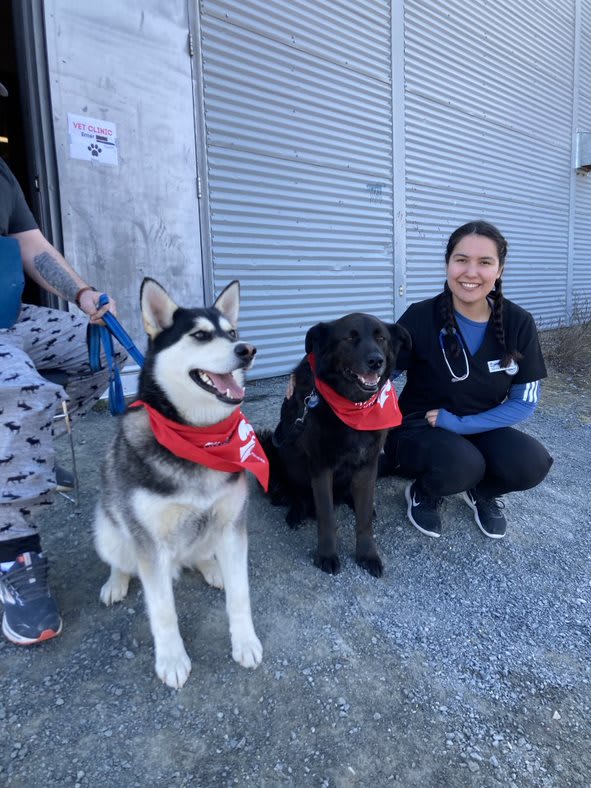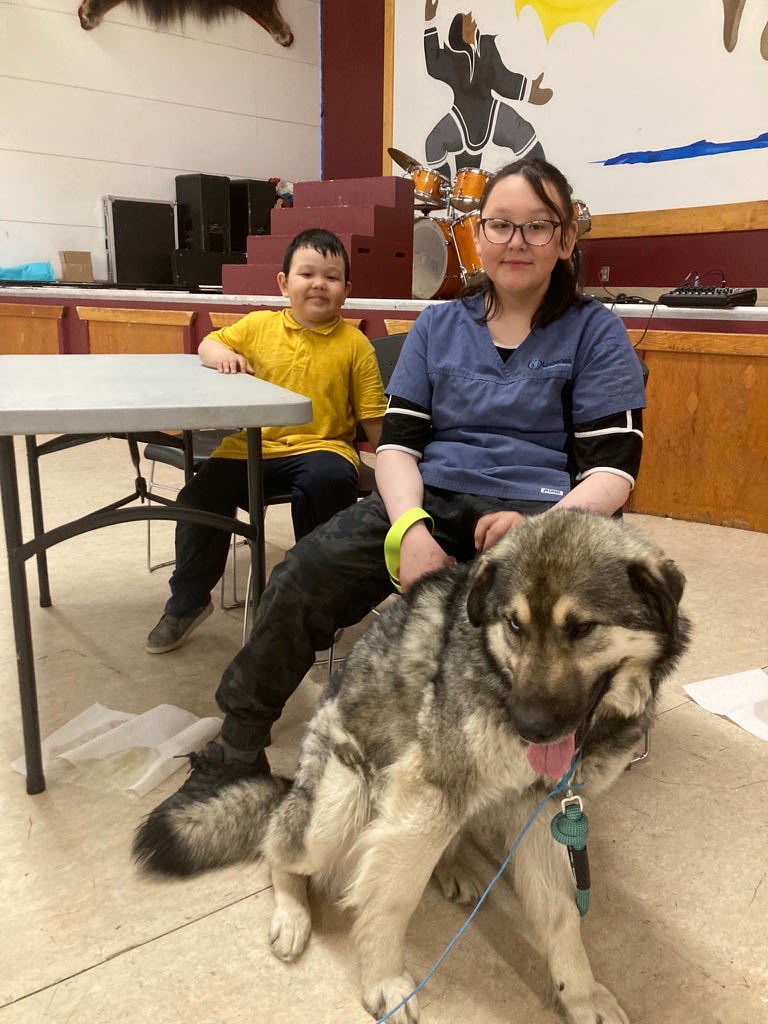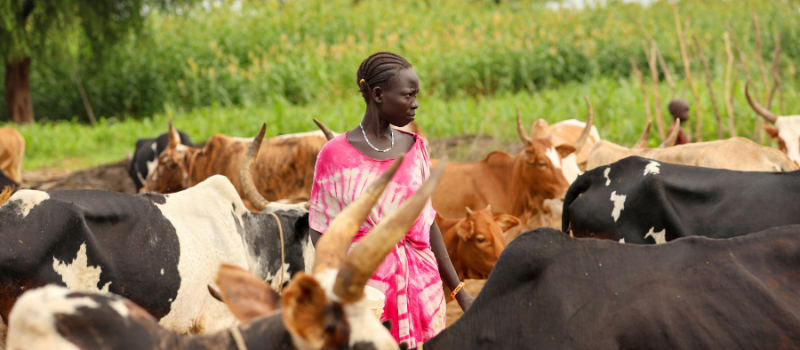OTTAWA, ON, June 13, 2023 - Veterinarians Without Borders/Vétérinaires Sans Frontières (VWB/VSF) has announced its Access to Care Awards program is, once again, accepting applications. From Tuesday, June 13, 2023, to Tuesday, August 15, 2023, applications will be accepted from any individuals living in the territories, with priority given to Indigenous applicants. Awards include one $10,000 scholarship for a veterinary school student, five $5,000 bursaries for individuals pursuing animal and One Health-related diplomas or certificates, pet first aid courses for members of remote northern communities where VWB/VSF runs temporary remote clinics that currently partner with Veterinarians Without Borders, and an online career fair for high school students to promote opportunities in the animal health sector.
“Our first Access to Care Awards, which launched in November 2022, had an incredible selection of candidates,” said Marieke van der Velden, Northern Canada Program Manager at VWB/VSF. “Through this program, we provided animal health and welfare scholarships, bursaries, and training to students across the Northwest Territories, Nunavut, and the Yukon,” she added. “Our second round of awards’ application period will more closely match the Canadian education calendar, and because of this, we hope to further encourage applicants who are on the cusp of pursuing exciting opportunities with the resources to do so,” said van der Velden.
The first round of Access to Care Awards recipients included two scholarship recipients, five bursary recipients, and eight pet first aid recipients.
One of the bursary recipients, Enooyaq Sudlovenick, is a PhD student at the University of Manitoba. She notes that there is cultural importance to increasing northern students in the fields of animal health and one health. “There are so many ways to bring together Indigenous knowledge and western science; it all starts with having Indigenous people in biology or any other STEM program,” said Sudlovenick.
Two previous pet first aid course recipients who are teenagers from Arctic communities, Natasha Peyton Kuliktana and Alia Aglukkaq, who have the desire and passion to become veterinarians. Both teens volunteered their time during the temporary clinic in their community.
“During our temporary veterinary clinics, we have the chance to work with and meet community members who are incredibly interested in the field of animal health,” said van der Velden. “Being able to offer this awards program offers them the resources to explore and nurture this interest, while also brining their learnings back to their community,” she added.
The Access to Care Awards are an important part of VWB/VSF's Northern Animal Health Initiative, which is dedicated to increasing access to veterinary care across Canada's North. In 2017, a study conducted on behalf of VWB/VSF found 54 remote communities of 100 or more people in Canada’s three northern territories had little or no access to veterinary services. Animals in these regions also tend to live shorter lives, dying from diseases and causes that are either treatable or preventable. There is also a very real health threat to people. In some communities, the inability to control dog populations puts humans, particularly children, at risk from dog bites, for example. As well, unvaccinated dogs can transfer diseases, including rabies, to humans. By working with communities, VWB/VSF is helping to strengthen the health of animals and their human companions.
Interviews are available upon request. Individuals can apply at vetswithoutborders.ca/northernawards
Photos:

Tannicka Reeves, scholarship recipient, at the recent Kugluktuk clinic.

Natasha Peyton Kuliktana, pet first aid recipient, with clinic patient, Jax, and her nephew at the recent Kugluktuk clinic.
Media contact
Laura Eley
Communications Officer
E: laura@vetswithoutborders.ca
C: +1-416-579-3111
About Veterinarians Without Borders/Vétérinaires Sans Frontières
Using a One Health approach, Veterinarians Without Borders (VWB) works for, and with, communities in need to foster the health of animals, people and the environments that sustain us. VWB works in Africa and Asia to improve the living conditions of the most disadvantaged rural populations through veterinary and agricultural services, sustainable animal production, training, value chain development and sustainable natural resource management. Additionally, we support remote Northern Canadian communities to improve animal health through temporary spay and neuter clinics, reduce the spread of rabies, and work to create the conditions for long-term, community-led sustainable animal health services. VWB/VSF also responds to crises, worldwide, and is currently providing emergency support in Ukraine, Pakistan, South Sudan, and Turkey to address the growing needs of animals and communities.
About the Northern Health Animal Initiative
The Northern Animal Health Initiative is focused on improving animal health in the Canadian North by providing services and resources to build capacity in underserved communities in Nunavut and the Northwest Territories. Veterinarians without Borders develops partnerships with remote communities in the Canadian territories upon their invitation. We work with them to identify needs and build a plan with community representatives to build local capacity to address animal care needs year-round. This includes offering temporary veterinary clinics with a team of volunteers. Our aim is to build a sustainable framework that will create the conditions for lasting, community-driven animal health.
Learn more at vetswithoutborders.ca
-30-




